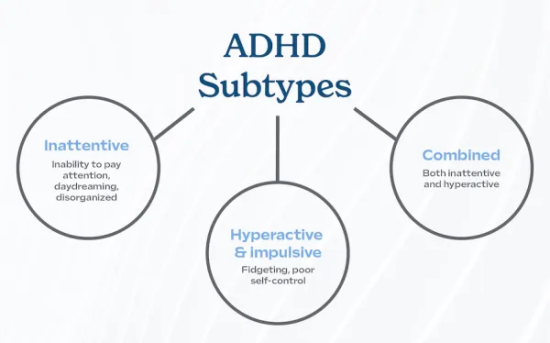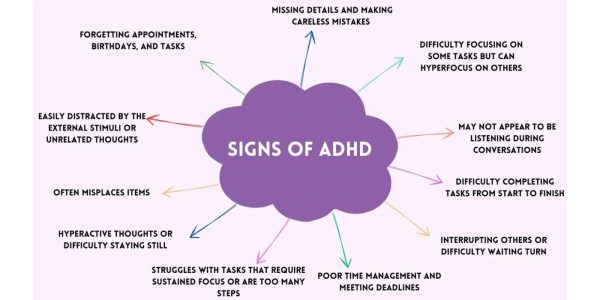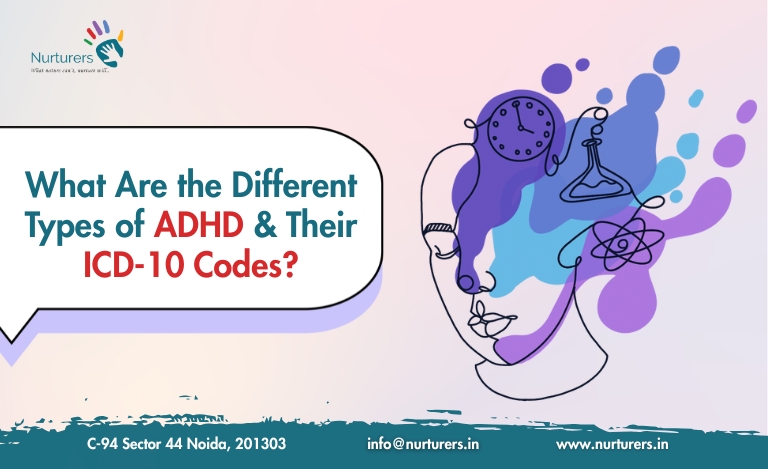Attention-Deficit/Hyperactivity Disorder (ADHD) is a neurodevelopmental condition characterized by symptoms such as inattention, hyperactivity, and impulsivity. In the ICD-10 classification system, ADHD is listed under the code F90, which is further divided based on specific symptom patterns. The term ADHD ICD-10 10 is commonly used in medical records and diagnostic reports to ensure standardized diagnosis and treatment. These classifications help healthcare professionals determine whether an individual exhibits primarily inattentive behavior, hyperactive-impulsive traits, a combination of both, or other unspecified presentations, guiding effective intervention and care.
What is ADHD?
ADHD stands for Attention Deficit Hyperactivity Disorder, a chronic condition that impacts a person’s ability to regulate attention, impulses, and activity levels. It typically appears in early childhood and can affect functioning at school, home, and in social environments.
ADHD is not just about being overly energetic or inattentive. It’s a brain-based disorder involving differences in brain structure and function, especially in areas that control attention, self-regulation, and executive functioning.
Key symptoms include:
- Difficulty sustaining attention
- Forgetfulness
- Impulsivity
- Excessive movement or talking
- Trouble following instructions
These symptoms can vary greatly from child to child and are grouped into different types of ADHD, which we’ll explore below.

Types of ADHD in Children
Understanding the different types of ADHD is essential for tailoring effective treatment strategies. The Diagnostic and Statistical Manual of Mental Disorders (DSM-5) and ICD-10 (International Classification of Diseases, 10th Revision) provide specific criteria for classifying ADHD.
There are three main types of ADHD, each with its own ICD-10 code:
1. Predominantly Inattentive Type
ICD-10 Code: F90.0 – Disturbance of activity and attention
This type is characterized by:
- Frequent careless mistakes in schoolwork or other tasks
- Difficulty staying focused during lectures or conversations
- Trouble organizing tasks and managing time
- Being easily distracted by extraneous stimuli
- Frequently losing items like toys, school supplies, or books
This type of ADHD is often overlooked, especially in girls, because it doesn’t always involve disruptive behavior.
2. Predominantly Hyperactive-Impulsive Type
ICD-10 Code: F90.1 – Hyperkinetic conduct disorder
Key traits include:
- Constant fidgeting or squirming
- Running or climbing in inappropriate situations
- Excessive talking or interrupting others
- Acting without thinking about consequences
- Difficulty waiting for their turn
This type is more visibly disruptive and is commonly recognized in school settings where structure and rules are emphasized.
3. Combined Type (Inattentive + Hyperactive-Impulsive)
ICD-10 Code: F90.2 – Hyperkinetic disorders
This is the most common type of ADHD, where a child exhibits both inattentive and hyperactive-impulsive symptoms. These children:
- Struggle with concentration
- Show impulsive behaviors
- Have difficulty sitting still or waiting their turn
- May have poor academic performance and low self-esteem
A child with combined type ADHD may face more challenges in daily functioning and typically requires a multi-disciplinary treatment approach.

Why ICD-10 Codes Matter in ADHD Diagnosis?
The ICD-10 codes for ADHD help standardize diagnosis and enable consistency in medical records, insurance claims, school accommodations, and treatment planning. The most relevant codes include:
Type of ADHD | ICD-10 Code | Description |
Predominantly Inattentive | F90.0 | Disturbance of activity and attention |
Predominantly Hyperactive-Impulsive | F90.1 | Hyperkinetic conduct disorder |
Combined Type | F90.2 | Hyperkinetic disorders |
For accurate ADHD diagnosis, mental health professionals often use a combination of:
- Clinical interviews with parents and teachers
- Behavioral checklists
- Cognitive and academic assessments
- Observations in structured and unstructured settings
At Nurturers, our team uses evidence-based tools to assess ADHD in children, ensuring clarity and confidence in every diagnosis.
ADHD in Children: Signs Parents Shouldn’t Ignore
ADHD symptoms often emerge before the age of 12, though they can be detected as early as age 3. It’s crucial to observe your child over time and across settings, such as at home, school, or during social interactions.
Common signs of ADHD in children include:
- Easily distracted, even during play
- Trouble completing homework or chores
- Talking excessively or blurting out answers
- Difficulty playing quietly
- Impatient and often interrupting others
These behaviors are not always signs of laziness or misbehavior. They could point to underlying ADHD, and timely intervention can make a significant difference.

ADHD Therapy Options at Nurturers
Once a proper ADHD diagnosis is made, the next step is intervention. There is no one-size-fits-all approach, but early and consistent ADHD therapy can help children manage symptoms and thrive in their environment.
Our ADHD therapy plans at Nurturers include:
- Behavioral Therapy – Helps children build self-control and reduce disruptive behaviors.
- Cognitive Behavioral Therapy (CBT) – Especially useful for older children and teens to manage thoughts and emotions.
- Parent Coaching – Equips caregivers with tools to reinforce positive behavior and structure at home.
- Educational Support – Classroom strategies, special educators, and IEP (Individualized Education Plans) support.
- Occupational Therapy – Improves focus, motor skills, and daily routines.
- Medication (if needed) – We coordinate with pediatric neurologists and psychiatrists for comprehensive care.
Our team includes top ADHD specialists in Noida, with extensive experience in child psychology, therapy, and early intervention.

Why Choose Nurturers for ADHD Support?
At Nurturers, we believe in empowering every child to unlock their potential. We take a holistic approach to ADHD in children, combining clinical expertise with compassion and creativity.
- Experienced child psychologists and therapists
- Individualized therapy plans
- Evidence-based tools and international best practices
- Supportive environment for both children and parents
- Located conveniently in Noida, the NCR region
Final Thoughts
Understanding the types of ADHD and their ICD-10 codes is not just a technical necessity—it’s the foundation for getting your child the help they need. Early ADHD diagnosis, customized ADHD therapy, and working with an experienced ADHD specialist in Noida can bring transformative results.
If you suspect your child may be struggling with ADHD, don’t delay. Early intervention leads to better results.

